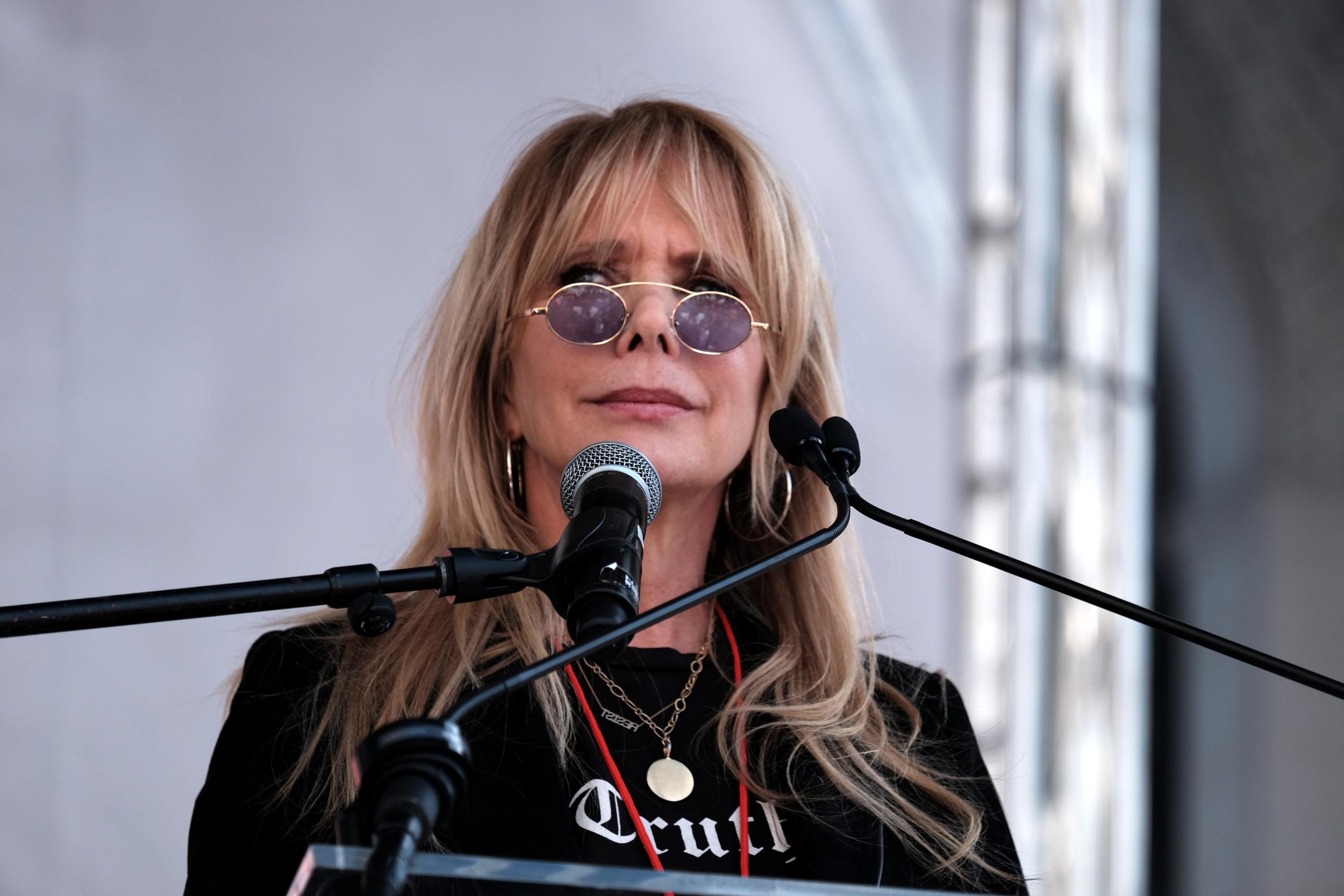Rosanna Arquette speaks out as Harvey Weinstein faces trial on sex crimes: ‘I just hope he goes to jail’
Arquette sees the present time as 'a dark place' but also believes there’s a 'very distant light at the end of the tunnel'

Your support helps us to tell the story
From reproductive rights to climate change to Big Tech, The Independent is on the ground when the story is developing. Whether it's investigating the financials of Elon Musk's pro-Trump PAC or producing our latest documentary, 'The A Word', which shines a light on the American women fighting for reproductive rights, we know how important it is to parse out the facts from the messaging.
At such a critical moment in US history, we need reporters on the ground. Your donation allows us to keep sending journalists to speak to both sides of the story.
The Independent is trusted by Americans across the entire political spectrum. And unlike many other quality news outlets, we choose not to lock Americans out of our reporting and analysis with paywalls. We believe quality journalism should be available to everyone, paid for by those who can afford it.
Your support makes all the difference.Rosanna Arquette was one of seven women, most of them wearing red, who, on 6 January, gathered outside the New York City courthouse on the first day of Harvey Weinstein’s trial. Arquette, Rose McGowan, Sarah Ann Masse, Dominique Huett, Lauren Sivan, Louise Godbold and Paula Williams – all of whom have spoken out against the former movie mogul – delivered joint statements to the press shortly after Weinstein made his way inside the courthouse.
“As we stand here at the beginning of a new year and a new decade, time’s up on sexual harassment in all workplaces. And time’s up on the pervasive culture of silence that has enabled abusers like Weinstein,” Arquette said at the time.
Two weeks later, a jury – made up of seven men and five women – has finally been selected, through an arduous process which saw many potential jurors dismissed over neutrality issues. Arquette’s resolve hasn’t been diminished, though she acknowledges in an interview with The Independent the day before the trial’s official start that coming forward against Weinstein has been “very hard”.
“I do believe in a fair trial. He deserves a fair trial like anyone. So let the evidence come out and hopefully we’ll have… we’ll see what happens,” she said on Tuesday, the day before opening arguments were made. Asked what justice would look like for survivors, she added: “Justice for the survivors looks like him getting punished for his crimes. I just hope he goes to jail.”
Arquette was one of the first people who shared allegations of sexual misconduct against Weinstein. Back in October 2017, she was quoted in the New Yorker as part of an extensive investigation by Ronan Farrow, alleging that during a meeting in the early Nineties, Weinstein asked her for a massage, pulled her hand towards his crotch and, when she stopped the interaction, told her she was making a mistake. Arquette alleges that her career was derailed after the incident.
Weinstein has denied all allegations of non-consensual sex, and he has denied retaliating against women. The producer is now facing trial in New York City over charges that he raped a woman in 2013 and performing a forcible sex act on another woman in 2006. He has denied those charges and pleaded not guilty.
Since coming forward against Weinstein, Arquette says she has found solace with other women who have also accused him publicly. “I think that’s where we do find support more than anywhere – with the survivors themselves,” she says. “...There’s a lot of people who have each other’s back.”
It’s been “eye-opening”, she adds, to see who among her entourage has been here to support her and who hasn’t. “I think a lot of people just don’t want to be involved and have disappeared,” she says. Asked what might explain that behaviour, she comments: “There’s still a lot of people that protect Harvey and men like Harvey, because God knows there’s so many others.”
On the topic of #MeToo, Arquette is hopeful and insistent that the movement “is not about taking down men and being men haters”. “It’s just corrupt, criminal bad men who hurt women and children and they need to be exposed for their predatory, criminal behaviour,” she says. For her, the #MeToo conversation needs to address broader themes such as masculinity, sexuality, pornography, and finding “the root cause of why somebody like Harvey Weinstein or Bill Cosby or Jeffrey Epstein became this guy, became this kind of man that would do this. What happened to them?”
Coming against a powerful man publicly, she says, is “a really dirty job, but somebody has to do it”. “It's been a lot, very painful. [I’ve] lost a lot of friends and allies and people who don't want to be involved,” she adds. “It's hard. It's very hard. But I wouldn't change it all because I think this is really a shift in our culture and it’s so important.”
While Arquette sees the present time as “a dark place”, she also believes there’s a “very distant light at the end of the tunnel”.
“But in order to continue, we have to move forward, we have to keep supporting each other and we have to keep going. ...And this is what everybody has to remember: Harvey Weinstein is on trial. We are not.”